English version is below
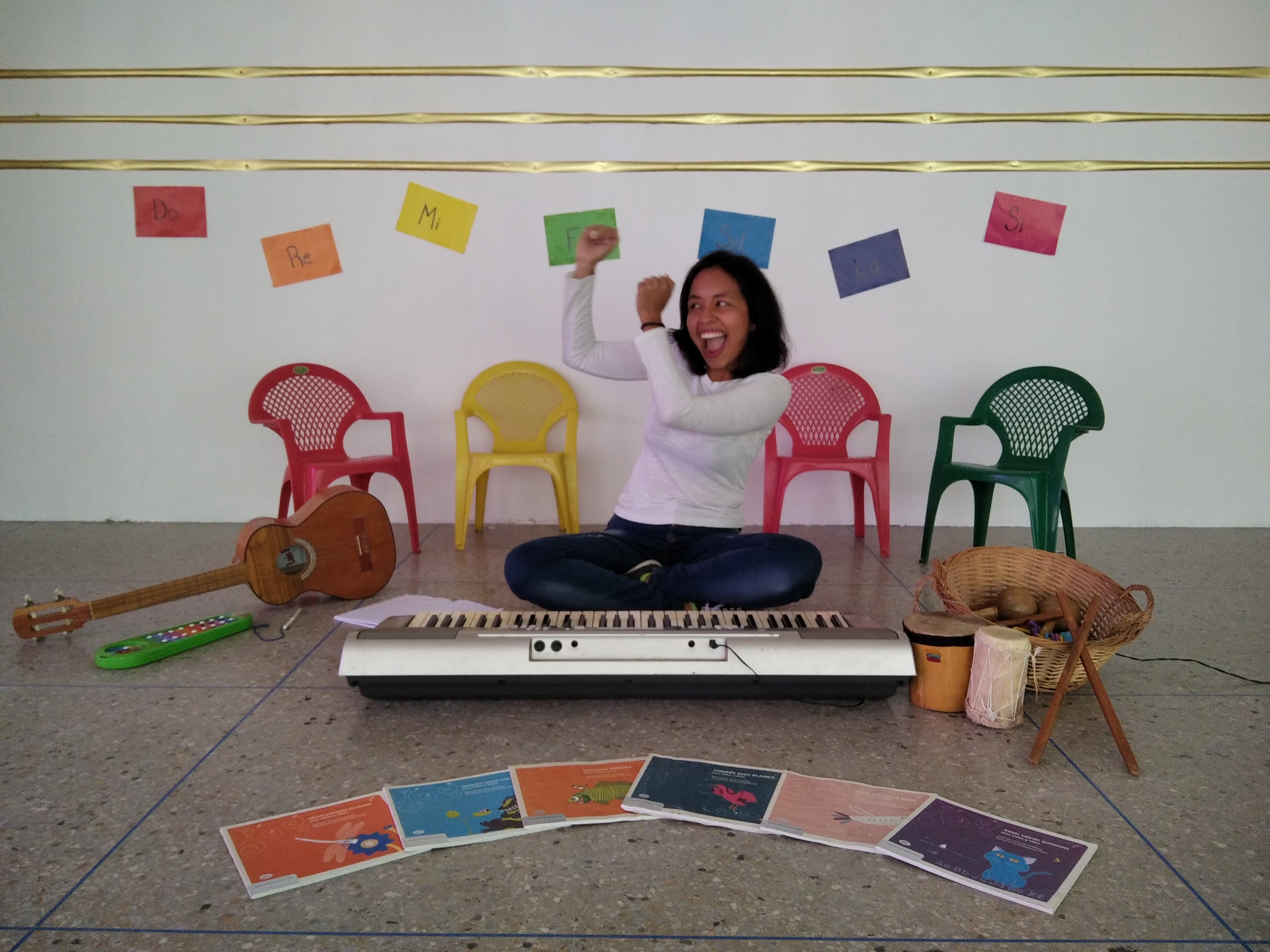
Saludos hemosuras de #Motherhood y toda la #colmena. En este post que organicé con mucho amor quiero hablarles de una herramienta tan benéfica para el desarrollo integral del ser humano como pocas: la MÚSICA, y en ese orden de ideas, qué es la musicalización y por qué es un regalo que le darías a tus hijos para todos los aspectos de su vida presente y futura.
Como este tema realmente me apasiona, este día me siento realmente feliz de poder compartir mi experiencia en este campo, como pedagoga musical y como mamá, y deseo que estas Razones para Musicalizar a sus hijos les inspiren y motiven a activar elementos que ya existen en nuestra naturaleza humana, y que sólo necesitan ser despertados y luego, potenciados. ¡Vamos!
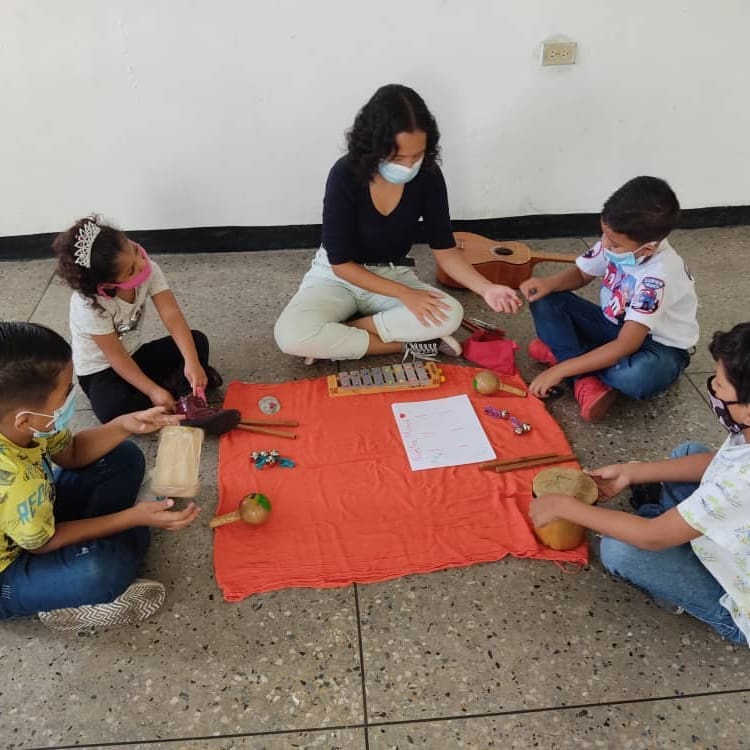
La Música
Desde hace varias décadas ha venido tomando mucha fuerza, respaldada por investigación científica, la aceptación de la incidencia positiva que, a cualquier edad, tiene la música en los seres humanos. La estimulación de ciertas zonas del cerebro ante los estímulos sonoros se asocia con la relajación y el placer, la creatividad o la resolución de problemas, entre muchos otros efectos y destrezas, incluso desde la "pasividad" de la audición y más aún en el caso de la ejecución, especialmente cuando el proceso de aprendizaje musical se gesta en la infancia, etapa predilecta para la adquisición de cualquier tipo de habilidad.
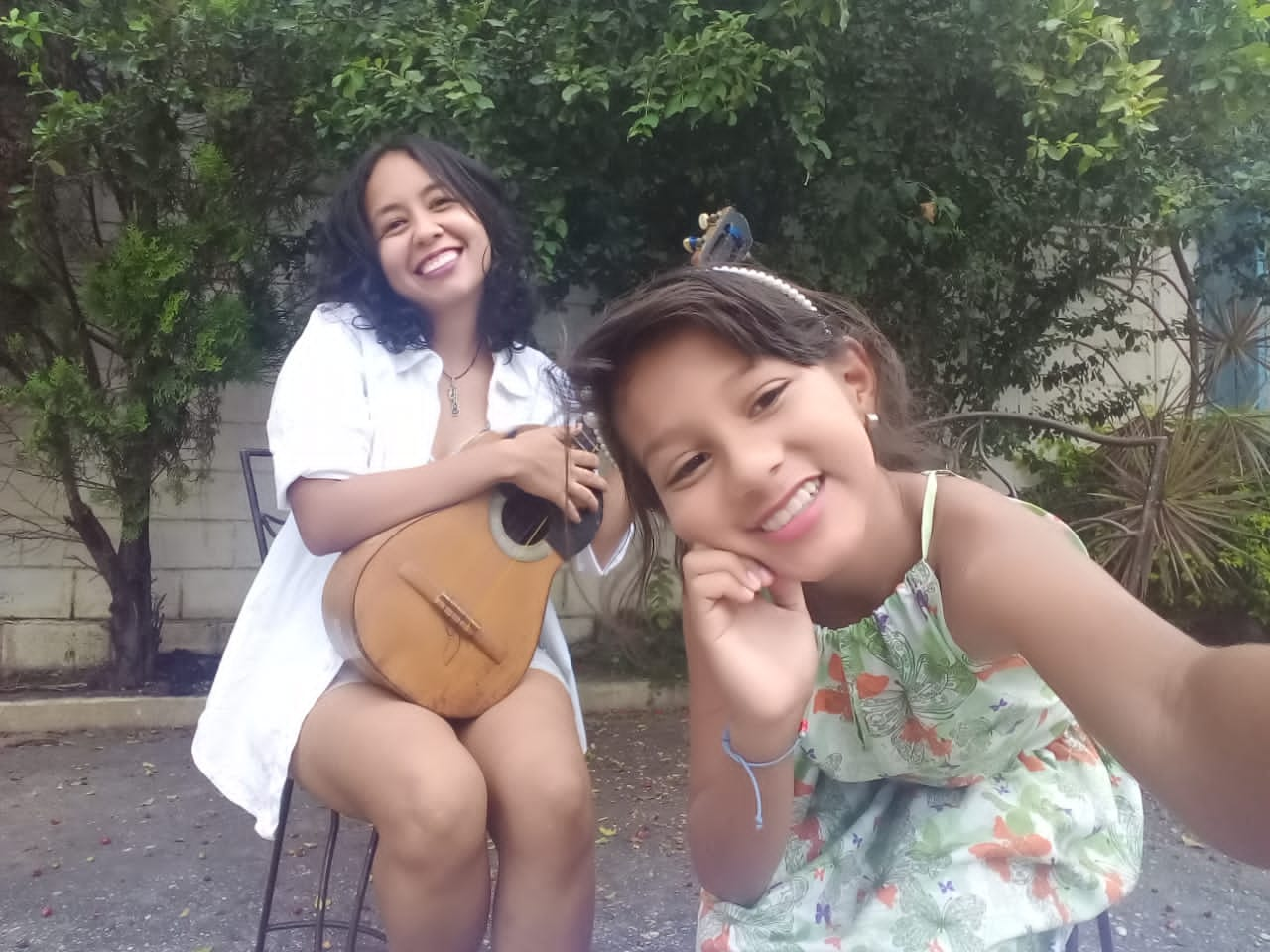
Para muchas personas la música es un objetivo: la posibilidad de aprender a cantar o a tocar un instrumento y efectivamente hacerlo. Para otras representa un recurso del que se hace uso para el entretenimiento, la diversión, la recreación y el disfrute en general y, aunque evidentemente puede ser muchas cosas más, para mí (igual que para un gran número de personas) la música es un medio, un camino que nos puede llevar a muchas partes: a la disciplina, al compromiso, a la pasión, a la empatía, al respeto, a la sensibilidad, al ejercicio de una ciudadanía responsable y al desarrollo de habilidades que son imprescindibles en el desarrollo humano tanto físico como intelectual; por lo que ofrecerle a un niño un proceso de aprendizaje musical que esté orientado pedagógicamente y esté basado en sus necesidades es como entregarle una llave para abrir las puertas del mundo.
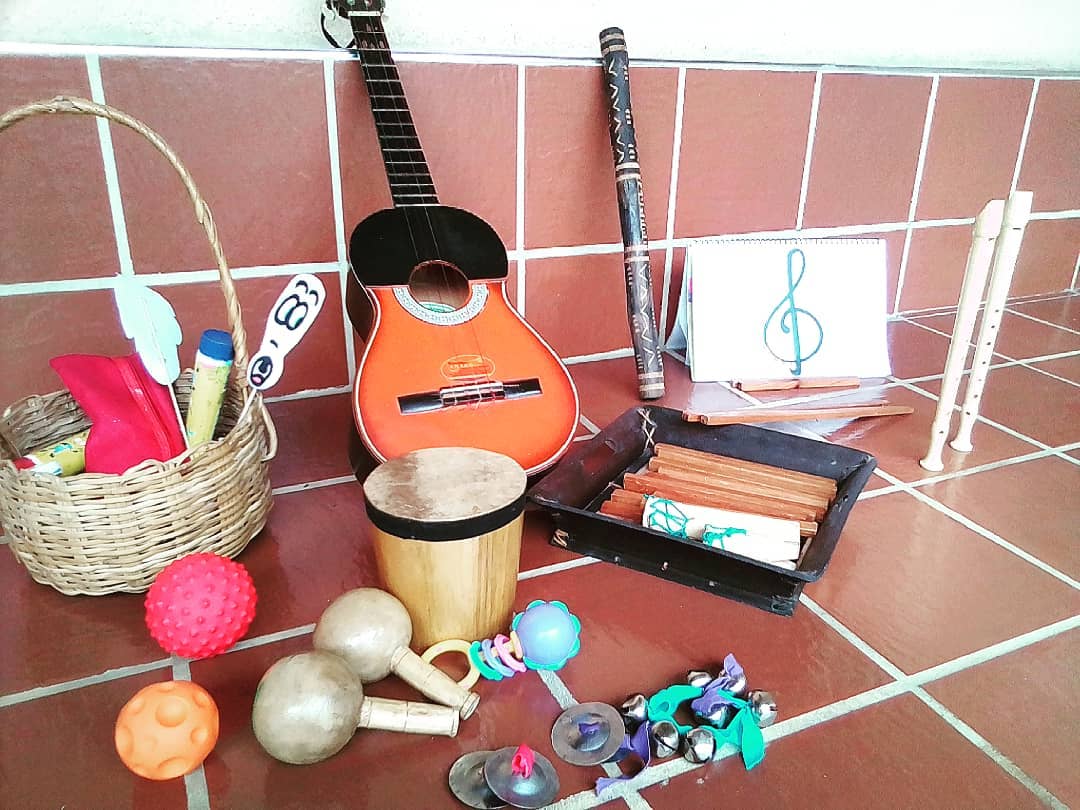
La Musicalización
Musicalizar a un niño es exponerlo a estímulos relacionados con ritmo, melodía, armonía y consciencia acústica, y despertar las aptitudes musicales naturales que posee (y sí, todos las tenemos en mayor o menor medida), y afianzarlas mientras que simultáneamente van ocurriendo increíbles fenómenos: se desarrolla la coordinación, la motricidad, el lenguaje gestual, la socialización de ideas, entre otras maravillas.
Pero es importante tener en cuenta que musicalización NO es lenguaje musical (esto viene después, en una segunda etapa de aprendizaje), no es un lenguaje formal, no implica conceptos, ni explicaciones, aunque sí es la base sólida sobre la que luego, dichos conceptos, podrían ser colocados. En cambio SÍ es una experiencia sensorial, es caminar la musica, moverse en ella, escucharla y sentirla, VIVIRLA, siendo el juego y lo cotidiano el universo en el que todo esto es posible; en una clase de música, en sesiones de estimulación musical, o en casa con un núcleo familiar que, sin la necesidad de ser experto en la materia, tenga la voluntad para educarse un poco y proveer a sus niños de nuevas y efectivas herramientas para su desarrollo integral.
Hasta aquí llevamos varias razones para brindarle a nuestros niños la oportunidad de emprender el camino de la música, lo que podría convertirlos en músicos virtuosos o profesionales, o no hacerlo, y en cualquiera de los dos caso este aprendizaje habría aportado a su autovaloración y a su capacidad para enfrentar las dificultades de su vida con mayores probabilidades de resolverlas exitosamente.
Sin embargo, y porque son muchas, por aquí dejo más habilidades que los niños y niñas logran a través de la música, todas son razones poderosas:

- Utilizar la música como medio de expresión de ideas, sentimientos y deseos.
- Reconocer su cuerpo y coordinar sus movimientos.
- Desarrollar audición efectiva.
- Socializar.
- Desarrollar disociación motriz.
- Reconocer su contexto cultural como medio creativo.
- Amplíar su vocabulario.
- Estimular la inteligencia lógica y matemática.
- Resolver problemas.
- Crear un autoconcepto basado en sus fortalezas.
- Disfrutar la experiencia.
Ya este post se acaba...
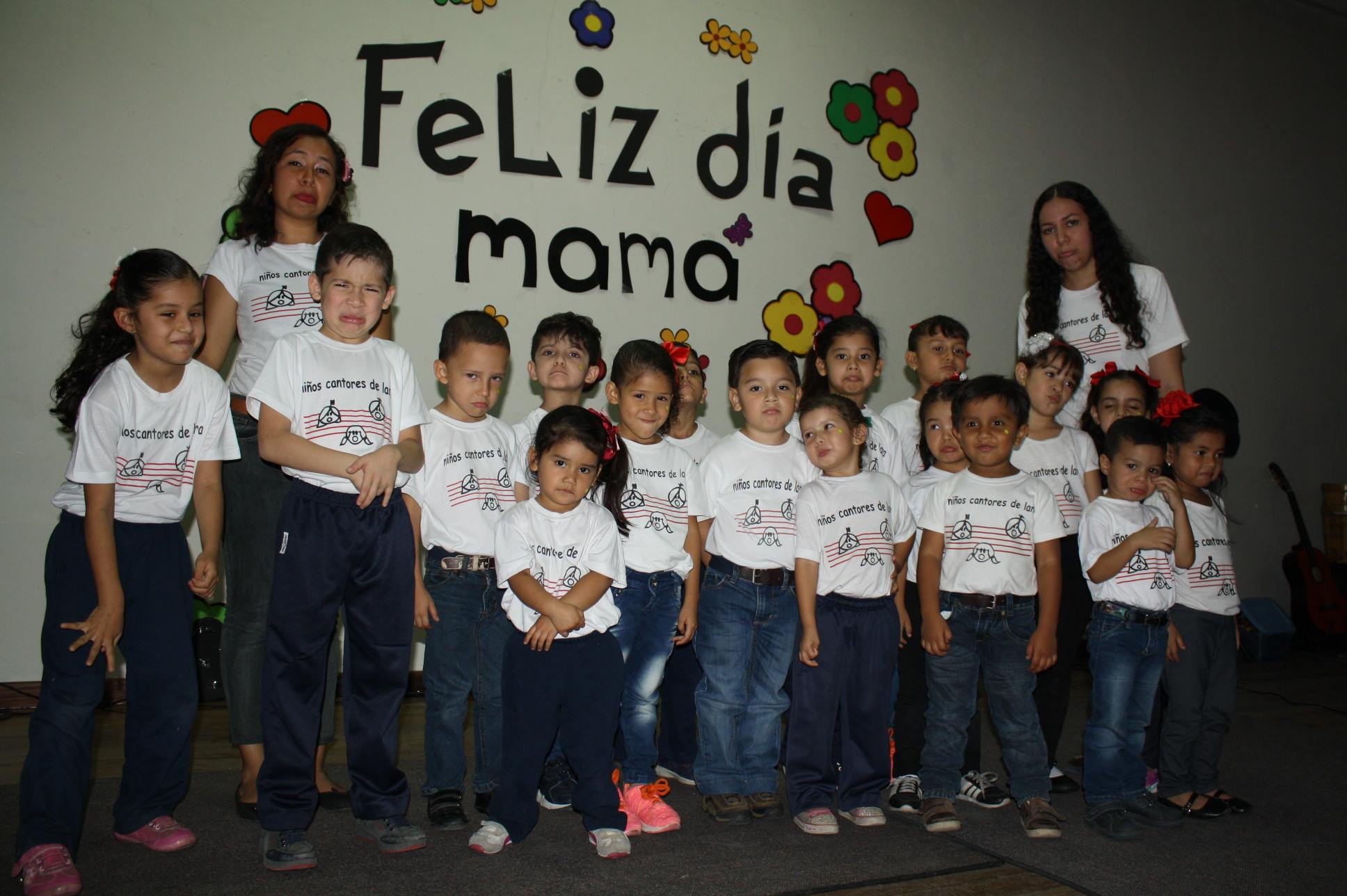
...pero aún queda mucho que contar.
Los espero en el próximo. Gracias por acompañarme ♥
- Todas las fotos son de mi propiedad.
- Otros post relacionados con música y/o pedagogía infantil:

English version

Greetings from #Motherhood and all #Hive. In this post that I organized with much love I want to talk to you about a tool as beneficial for the integral development of the human being as few: MUSIC, and in that order of ideas, what is musicalization and why it is a gift that you would give to your children for all aspects of their present and future life.
As I am really passionate about this topic, this day I feel really happy to be able to share my experience in this field, as a music pedagogue and as a mom, and I wish that these Reasons to Musicalize your children inspire and motivate you to activate elements that already exist in our human nature, and that only need to be awakened and then, empowered. Let's go!

Music
For several decades, the acceptance of the positive impact that, at any age, music has on human beings has been gaining strength, supported by scientific research. The stimulation of certain areas of the brain to sound stimuli is associated with relaxation and pleasure, creativity or problem solving, among many other effects and skills, even from the "passivity" of hearing and even more so in the case of performance, especially when the musical learning process is gestated in childhood, a favorite stage for the acquisition of any skill.

For many people music is a goal: the chance to learn to sing or play an instrument and actually do it. For others it represents a resource that is used for entertainment, fun, recreation and general enjoyment and, although it can obviously be many other things, for me (as for a great number of people) music is a means, a path that can lead us to many places: to discipline, to commitment, to passion, to empathy, to respect, to sensitivity, to the exercise of responsible citizenship and to the development of skills that are essential in human development both physical and intellectual; so offering a child a musical learning process that is pedagogically oriented and based on their needs is like handing them a key to open the doors of the world.

The Musicalization
To musicalize a child is to expose him/her to stimuli related to rhythm, melody, harmony and acoustic awareness, and to awaken the natural musical aptitudes that he/she possesses (and yes, we all have them to a greater or lesser extent), and to strengthen them while simultaneously incredible phenomena are occurring: coordination, motor skills, gestural language, socialization of ideas, among other wonders, are developed.
But it is important to keep in mind that musicalization is NOT musical language (this comes later, in a second learning stage), it is not a formal language, it does not imply concepts, nor explanations, although it is the solid base on which these concepts could be placed. On the other hand It is a sensorial experience, it is to walk the music, to move in it, to listen to it and to feel it, to LIVE it, being the game and the daily life the universe in which all this is possible; in a music class, in sessions of musical stimulation, or at home with a family nucleus that, without the need to be an expert in the matter, has the will to educate itself a little and provides its children with new and effective tools for their integral development.
Up to here we have several reasons to give our children the opportunity to undertake the path of music, which could turn them into virtuoso or professional musicians, or not, and in either case this learning would have contributed to their self-esteem and their ability to face the difficulties of their lives with greater probabilities of solving them successfully.
However, and because there are many, here I leave more skills that children achieve through music, all of them are powerful reasons:.

- Use music as a means of expressing ideas, feelings and desires.
- Recognize their body and coordinate their movements.
- Develop effective listening skills.
- To socialize.
- Develop motor dissociation.
- Recognize their cultural context as a creative medium.
- Expand their vocabulary.
- Stimulate logical and mathematical intelligence.
- To solve problems.
- Create a self-concept based on their strengths.
- Enjoy the experience.
Already this post is ending.....

...but there is still a lot to tell.
I look forward to the next one. Thanks for joining me ♥
- All photos are my property.
- Other posts related to music and/or children's pedagogy:

Congratulations @amarirosil! You have completed the following achievement on the Hive blockchain and have been rewarded with new badge(s):
Your next target is to reach 50 posts.
You can view your badges on your board and compare yourself to others in the Ranking
If you no longer want to receive notifications, reply to this comment with the word
STOPTo support your work, I also upvoted your post!